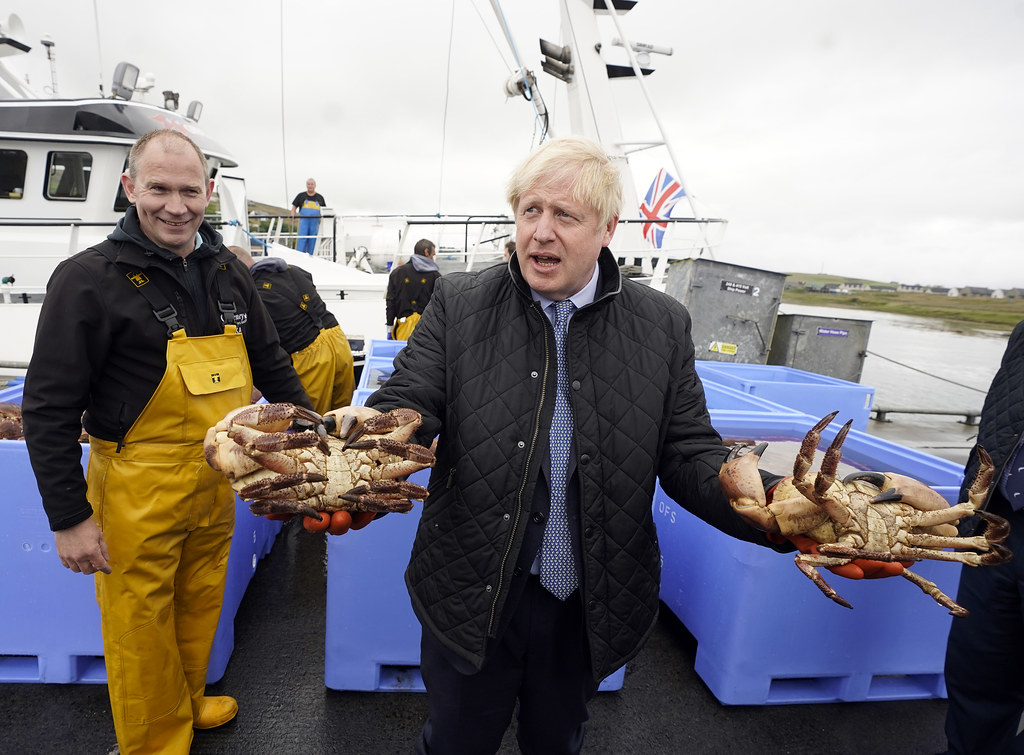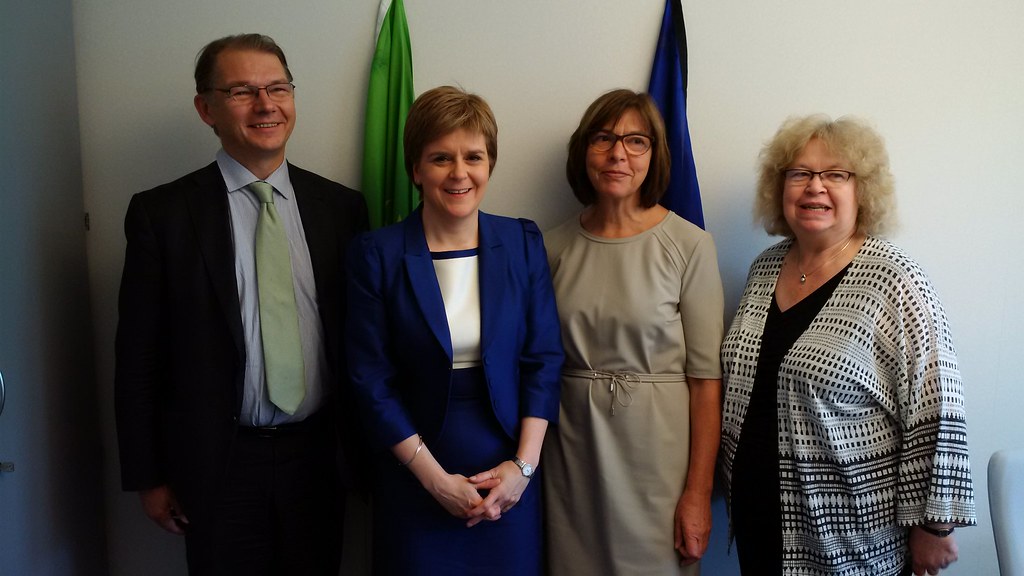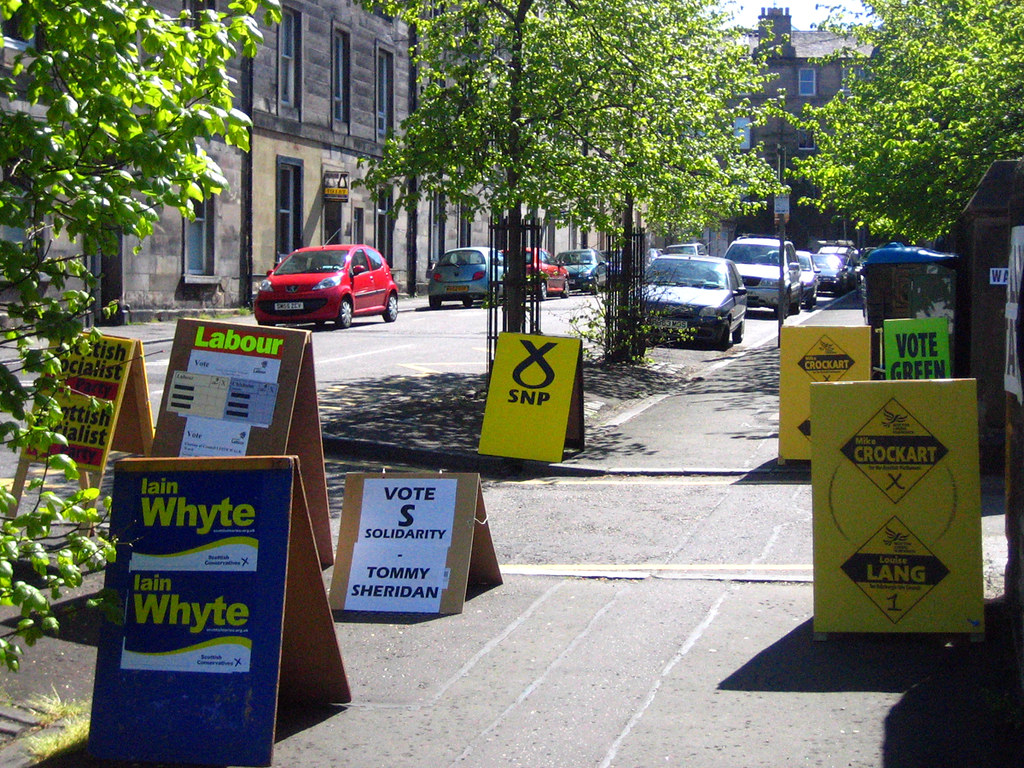Almost eight years after the 2014 referendum, the debate around whether or not Scotland should leave the Union has reemerged. This is a direct result of a manifesto commitment made by both the SNP and the Scottish Green Party during the 2021 Scottish election in response to the Brexit referendum – which did not represent how Scotland voted. Both parties promised that should the vote send a pro-independence majority to the Scottish Parliament, work towards a new independence referendum would begin.
The 2021 election
During the run-up to the May election, independence was a contentious issue. The SNP made it clear that a vote for them was a vote for a second referendum, and the unionist parties saw this as poor prioritisation. Each of them (Scottish Conservatives, Scottish Labour, and Scottish Liberal Democrats) argued that by dividing her focus between independence and the Covid-19 crisis, SNP leader Nicola Sturgeon would be giving the pandemic only half the attention it requires. However, in both the pro-independence parties' manifestos they state that a referendum would only be held after the pandemic has passed, and that it is essential for Scotland during the recovery period to rebuild as an independent nation, enabling it to shape its own future.
During a televised BBC One Scotland leaders' debate, Sturgeon's opponents challenged this by stating that if they spent the recovery period arguing amongst themselves then nothing would get done. Back-and-forths like this defined much of the campaign.
Ultimately, the question of independence did little to derail the expected results of the campaign; an SNP victory was all but guaranteed. From the very beginning, the other party leaders acknowledged they were fighting to be leaders of the opposition. The hot topic was whether or not the SNP would repeat their 2011 feat and obtain an outright majority. As the votes came in it became clear that such an event was unlikely to occur. After winning 62 out of 73 constituency seats the SNP fared poorly in the regional vote. This was due to the D'hondt formula — which divides a party's number of regional votes by their number of constituency seats. Gaining just two additional seats through the regional list, the SNP's total was brought to 64, just one away from the 65 needed to hold a majority on their own. Those who opposed another independence referendum cited this as a public dismissal of the SNP's agenda.
However, another pro-independence party — the Scottish Greens — secured their biggest victory in Holyrood history, firmly securing their position in fourth place with eight seats attained through the regional list. Technically speaking, this meant that Scotland had voted in the largest pro-independence majority in their parliament's history — trumping even the exceptional 2011 win.
As a result, the SNP currently argues that they have been given a clear mandate for another referendum in the near future. There is some debate over this given that a number of Scottish Green voters may be opposed to independence, and could only have voted for the party because of its commitment to tackling climate change. Yet the Scottish Greens have always been vocal about their support for independence, and given the strength of the pro-independence majority, it is hard to argue against the mandate. But arguing against it is exactly what Boris Johnson is doing.
Will a referendum happen?
Much of the rhetoric surrounding the 2014 independence referendum was the idea that it was a "once in a generation" vote. The then First Minister Alex Salmond stated that "it is a rare and precious moment in the history of Scotland – a once in a generation opportunity to chart a better way." Boris Johnson argues that this was a promise to the Scottish people that no other referendum would be held if this one did not secure independence. The tenuousness of this argument has prompted criticism. It is common for politicians to toss around phrases like 'once in a lifetime', but it is not common for such statements to be taken literally. It is exceedingly unlikely that any SNP member using the phrase intended to legally prohibit Scotland from voting on independence for another 40 years.
 Boris Johnson visiting Scotland fisheries by UK Prime Minister
Boris Johnson visiting Scotland fisheries by UK Prime Minister
The Smith Commission — an all-party commission established by the Conservative government to address issues of Scottish devolution after the 2014 referendum — stated in chapter 2, section 18 of its findings that "it is agreed that nothing in this report prevents Scotland becoming an independent country in the future should the people of Scotland so choose."
A core part of the SNP's justification for another referendum is Brexit. Before the 2016 referendum on EU membership took place, the SNPs manifesto read: "We believe that the Scottish Parliament should have the right to hold another referendum [...] if there is a significant and material change in the circumstances that prevailed in 2014, such as Scotland being taken out of the EU against our will." As Scotland voted to remain in the EU (62% for and 38% against), Brexit was deemed by the Scottish Parliament to be a suitably unprecedented event that reaffirmed the need for Scottish independence.
The main obstacle to a new referendum is Westminster. In the Scotland Act of 1998 — which saw the creation of the Scottish Parliament — it was established that anything relating to "the Union of the Kingdoms of Scotland and England" fell under the jurisdiction of the UK government. The 2014 referendum was only allowed because Westminster agreed to a temporary relinquishment of that power. For a truly legal referendum to take place, Westminster permission would be required.
MSP Brian Whittle of the Scottish Conservatives affirmed the idea that the referendum could only happen with Johnson's approval. He told us: "I think it’s unlikely to go ahead for a whole variety of reasons. One, we will resist it [...] the bottom line is that there has to be an agreement between Holyrood and Westminster. As it currently stands, I cannot see a referendum happening within this current parliamentary time." He also emphasised how many resources are taken up by any election/referendum, and how negatively this would impact COVID-19 recovery.
The hypotheticals
That being said, Holyrood remains intent on pursuing a referendum. The Scottish Green Party write in their manifesto that: "We believe that the UK Government’s refusal to respect a pro-independence majority in the Scottish Parliament would not be politically sustainable and could be subject to legal challenge." Should Johnson continue to resist, the SNP may decide to hold a referendum anyway. If this occurs, and Holyrood subsequently passes legislation that extends beyond the remit of their devolved powers, the UK government would have four weeks to challenge the decision in the Supreme Court. Westminster would be forced to take Holyrood to court. Such a legal challenge would be highly contentious and, according to Sturgeon, will "demonstrate conclusively that the UK is not a partnership of equals and astonishingly Westminster no longer sees it as a voluntary union."
It is unknown whether such a legal challenge would go ahead, but based on the Scotland Act, Westminster has a high chance of success in this scenario. If the Supreme Court strikes down Holyrood’s legislation, Scotland's only option would be to go to the UN. Because the UN recognises Scotland as a country and not a region, their rules on the rights to self-determination would likely be applicable.
It must be noted that we are now drifting into untested territory, and that assertions made by any side cannot be viewed as fact. The closest modern example to this hypothetical scenario is Catalonia — a largely autonomous region of Spain. They recently held a referendum without the Spanish Government's approval, the results of which supported independence but were marred by a low turnout that was partly due to a police crackdown. The Spanish Government fought the referendum throughout its process, and once the results were published, arrested a number of local council leaders and political organisers. Whilst the UN have asked Spain to release their political prisoners, they have not recognised the results of the referendum. Unlike Catalonia however, Scotland has always been a country, and was once a fully-fledged independent state. Whilst many Scots in favour of independence sympathise heavily with Catalonia, the legal parallels between them are limited, and there is no accurate way to predict how a UN appeal would play out.
 Catalan independence march by SBA73
Catalan independence march by SBA73
How have the arguments changed?
We talked about the arguments for and against independence in our last 'Independence explained'. Many of these arguments remain relevant, but some have evolved due to unforeseen circumstances.
Chief amongst these is, unsurprisingly, Brexit. The central argument of the Better Together campaign was that Scotland would not be able to rejoin the EU if they left the union. In an ironic turnaround, the potential for rejoining the EU has become a major talking point for Yes supporters. The Scottish Greens argue that:
"Independence is now our route back to EU membership [...] As an independent nation, Scotland would have the powers and potential to be a leader in the transition to a zero-carbon economy, working with the EU, the UN and our partners across the world to lead the change."
MSP Craig Hoy of the Scottish Conservatives told Voice that "I appreciate that many young people are frustrated about the UK’s exit from the European Union, however it is my view that as the world becomes more and more divided it’s important that we avoid building more barriers and that we stick together, and we now have a free trade deal with the EU and have struck similar deals around the world."
Whilst trade deals have been struck with 69 countries around the world, the majority are rollover deals — which copy the terms of deals that the UK had with them pre-Brexit. Furthermore, the new deals will only provide an economic benefit of no more than £7 per person over the next 15 years, according to the government's own estimates, and do not make up for the economic hit taken by Brexit.
 Scottish First Minister Nicola Sturgeon at the European Parliament by Rebecca Harms
Scottish First Minister Nicola Sturgeon at the European Parliament by Rebecca Harms
Critically for the Unionist argument, Brexit now means that if Scotland left the UK and joined the EU, there would potentially be a hard border between Scotland and England – a situation that would cause immense upheaval to trade on both sides unless a deal is reached. Mimicking the Northern Ireland protocol could be a potential solution, but as we are currently witnessing, this is far from a simple proposition. In any instance, for the Scottish National Party to present a legitimate case for independence this issue would have to be addressed.
The idea of Devomax has also been raised. Whilst some of what was promised during the 2014 referendum came to fruition (limited borrowing capabilities, and some power over income tax) Scotland is still far from the full fiscal autonomy that members of the Better Together campaign extolled. Supporters of independence argue that this proves the only way to guarantee further power is for Scotland to self-govern.
In a comment made to Voice MSP Christine Graham of the SNP said: "Scotland is a nation and as such should be responsible for all its affairs: domestic and foreign policy. Devolution has demonstrated that we have a different political perspective and priorities and vote distinctly differently from the rest of the UK in particular England."
Whilst it cannot be denied that Scotland and England have fundamentally different voting patterns (the dominance of the Tory party in the former nation being the most prominent example), there have been calls from Scottish Labour for the SNP to make full use of Holyrood's devolved powers, rather than spending time on a referendum. Devolution has been popular, and as powers continue to grow, the SNP will continue to be challenged on how they respond to the increased responsibility.
 Scottish polling station by Matito
Scottish polling station by Matito
One of the most common arguments laid out by the Unionists is the lambasting of the argumentative nature of a referendum. It has become the fashion for politicians who are against the vote taking place to refer to it as a "divisive" referendum, with the previously mentioned televised debate demonstrating this to its fullest extent. The 2014 referendum certainly caused many discussions amongst the people of Scotland. However, it is difficult to understand the point of this argument, prevalent though it is, considering that having different opinions is a fundamental part of a healthy democracy. Every vote creates division, but what is the alternative?
Voices on independence
Young people overwhelmingly poll in favour of independence. Eilidh, a student of Robert Gordon University who was just old enough to vote in the 2014 referendum, talked to us about why she believes independence to be beneficial for Scotland as a young person. She said that "I aspire to a better future. It seems to me that all the arguments for staying in Britain are based around fear, not hope. The only way to save the NHS from becoming privatised is to get rid of the Tory government, and the UK won't do that. I want to be part of the world, not Tory Britain."
On the other hand Lewis, a young person working in the Scottish finance industry, gave a statement against independence: "I'll say this, after Brexit, something like independence will create more uncertainty, and when it comes to the economy, the last thing you want is uncertainty."
MSP Brian Whittle echoes the financial argument: "the Union [...] helps to pay for all the services that all of society uses, including our younger people."
Based on statistics gained from both the 2014 referendum and a number of polls since then, there appears to be an age divide between opponents and proponents of independence. Older adults are more likely to side with the Union. A significant outlier to this is the organisation Pensioners for Independence, who we reached out to to comment on this divide.
"One reason over-65s [voted No] in 2014", the organisation's co-convener told us, "was the lie told to them by Better Together that they would lose their pensions [...] We emphasise the fact that the UK State pension is the lowest in Europe. We tell them it’s a matter of priorities and offer evidence that Scotland has rich enough assets to provide at least the EU average pension."
On the need for more intergenerational dialogue, they explained: "We’ve always encouraged younger people to discuss politics with their older relatives. When they approach our stalls we give them leaflets about Scotland’s assets to take home and show their parents and grandparents. We produce leaflets and put up posters urging older people 'Don’t let our past be our grandchildren’s future.'"
Regardless of opinion, the issue of independence will take centre stage in Scottish politics once the Covid-19 crisis has been brought under control. With all pro-independence parties saying that the second referendum should be held before the end of 2024, Holyrood and Westminster may have a long battle ahead of them.










0 Comments